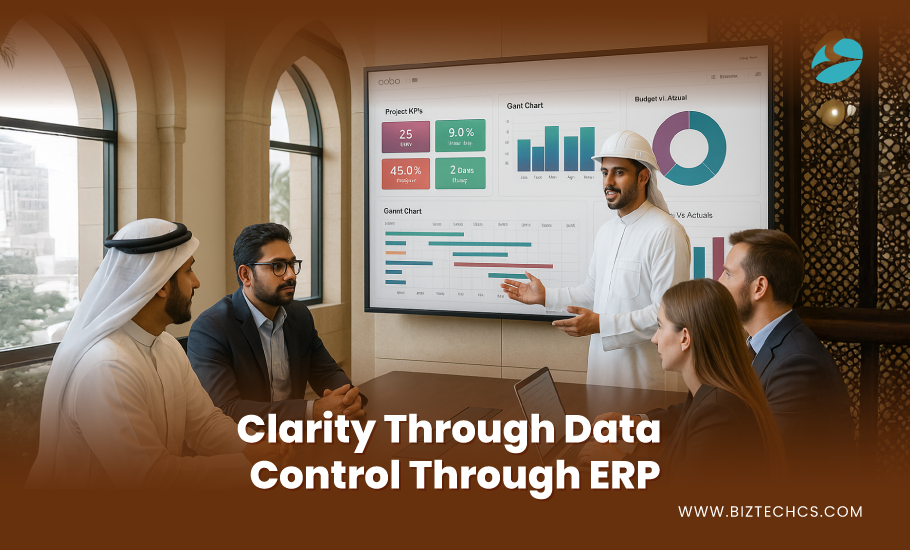101
What makes Odoo's ERP approach different from other ERP systems in the construction industry?
5 min read
101
5 min read
Table of Content

In the construction industry, things don’t always go as planned.
For Ahmed, that became painfully clear at 6:47 AM on a Tuesday. His site foreman in Abu Dhabi called with urgent news: “We’re out of rebar. The supplier says we never paid the last invoice. Client inspection is at 10 AM, and if we don’t pour concrete today, we’re facing a two-week delay and penalty clauses that could eat up our entire margin.”
Ahmed immediately rushed to his laptop, hoping to clear things up. Procurement says they paid the invoice. Finance says it’s still awaiting approval. The supplier insists they haven’t received anything. Three systems, three different stories, and his $12 million project is hanging by a thread because no one can get the right data at the right time.
This is a scenario that plays out more often than anyone wants to admit across the GCC construction industry. Despite the region’s $273 billion in project awards, many projects bleed money due to operational chaos. But here’s the truth: these issues are preventable.
At Biztech, we’ve dedicated ourselves to solving these problems. Our phased, modular Odoo deployment strategy is designed specifically for the unique challenges of GCC construction operations. It’s not about overhauling your entire system—it’s about making strategic, surgical improvements that will get you where you need to go.
Everyone’s talking about the boom—NEOM, Vision 2030, construction costs in Riyadh hitting $2,593 per square meter. But here’s what you see when you walk into construction offices across the Gulf: chaos disguised as growth.
Take this Qatar-based infrastructure firm we recently assessed. They operate across five countries with over 1,200 employees, winning contracts left and right. But their procurement team can’t see real-time project budgets.
Project managers can’t track actual costs against estimates. Finance can’t reconcile invoices with purchase orders. The potential impact? A 23% cost overrun on their largest project—$12 million that could be saved with the right approach.
Wait, let us ask you something: When was the last time you could instantly tell someone exactly how much you’ve spent on materials across all your active projects this month? Not an estimate. The actual number. Right now.
If you’re hesitating, you’re experiencing the same problem that’s costing construction firms millions across the GCC. But here’s where Biztech comes in—we’ve solved this exact challenge for dozens of construction firms across the region.
Here’s the thing—there’s a completely different way to approach this. Biztech has developed a phased, modular Odoo deployment strategy that’s specifically designed for the complexities of GCC construction operations. Instead of that terrifying “rip and replace” approach that keeps you awake at night, Biztech guides firms through targeted rollouts that address their most critical pain points first, then scale systematically.
Here’s how Biztech turns complex GCC construction challenges into a clear path for success.
This type of transformation should start with a brutally simple question: “Can you tell me, right now, how much you’ve spent on steel across all projects this month?”
If the answer takes three days and involves five different spreadsheets, that’s exactly where Biztech would start—we know precisely how to address this.
Here’s what Biztech recommends for the first 90 days:
You’re probably thinking: “Our procurement happens across different time zones and currencies. How do we ensure approval workflows work when our Dubai office needs to approve a purchase for our Riyadh site?”
That’s exactly the kind of real-world challenge BiztechCS solves first. Because if your approval workflows don’t work across regions, nothing else will.
When setting up your Chart of Accounts, it’s crucial to configure Withholding Tax (WHT) rules from the start. Saudi Arabia’s complex WHT requirements for contractors can’t be retrofitted—they need to be built into your journal entry logic from day one.
Six months into this type of transformation, firms typically face their next challenge: project profitability. They’re winning contracts, but can’t accurately track which projects generate profit and which ones consume it.
This is where Biztech would deploy Odoo’s Projects module with construction-specific customizations:

Here’s something most consultants won’t tell you: Odoo’s core modules are incredibly powerful out-of-the-box, but the magic happens when you know exactly which ones to deploy first and where strategic customization delivers exponential value.
Odoo Purchase Management – No customization needed. This module handles your multi-currency PO workflows, three-way matching, and vendor management from day one. We’ve deployed this across 50+ construction firms without a single line of custom code.
Odoo Accounting – The financial backbone that supports multi-entity, multi-currency operations. Built-in VAT handling, automated journal entries, and reporting structures that auditors actually love.
Odoo Inventory Management – Real-time stock tracking, barcode scanning, and automatic reordering. Perfect for managing materials across multiple job sites.
Odoo CRM – Lead management, opportunity tracking, and client communication. Essential for firms managing complex bidding processes.
But here’s where our experience becomes crucial. While these modules work brilliantly out-of-the-box, construction operations have nuances that require surgical customization—and this is where we see the biggest transformation opportunities:
Custom Project Costing Workflows – We can build construction-specific cost allocation logic that automatically distributes shared resources (equipment, supervisors, overhead) across projects based on actual usage, not estimates.
Progressive Billing Intelligence – Standard Odoo invoicing is powerful, but construction milestone billing could benefit from custom workflows that track retention, handle variation orders, and manage complex payment terms across different contract types.
Equipment Utilization Optimization – We recommend customizing Odoo’s asset management to track equipment as profit centers, automatically calculating hourly rates, scheduling maintenance, and optimizing allocation across projects.
Would you rather spend months building custom solutions from scratch, or leverage proven Odoo modules with strategic enhancements that deliver immediate value to you?
This is where Biztech’s approach differs from generic ERP partners. We can leverage Odoo’s robust foundation and add surgical customizations that transform good software into a competitive advantage.
You might be asking yourself: How can we track equipment utilization across projects and ensure accurate cost allocation for equipment time?’
Here’s how Biztech could configure this: We’d set up Odoo to track equipment as assets with hourly rates, automatically charging projects for actual usage while providing managers with live utilization dashboards. When a crane finishes work at Project A three days early, the system would automatically flag its availability for Project B.
Expected Results: Based on similar implementations, you could see project margins improve by 15-20% within the first quarter, and equipment utilization jump from typical industry levels around 60% to 80%+.
💡 Biztech insight: We always recommend setting up analytic accounting tags for each project before starting Purchase integration. This allows automatic cost allocation and prevents the nightmare of manual cost assignment later.
The final phase should tackle your most complex challenge: invoicing and cash flow management. Here’s how Biztech would configure Odoo’s Invoicing module:
Another question you probably have: “We work with government clients who pay in 90+ days and private clients who pay in 30 days. How would you help us manage cash flow planning when payment terms vary so dramatically?”
This is where proper Biztech ERP configuration could make all the difference. We’d configure payment terms and collection probabilities during customer setup, not when you’re already experiencing cash flow challenges.
You could expect results that exceed expectations. Similar firms typically see their average collection period reduce from 70+ days to 50+ days. More crucially, you’d gain 90-day cash flow visibility, enabling better project selection and resource planning decisions.

Operating across GCC markets means navigating multiple regulatory frameworks simultaneously. Here’s how Biztech could build this complexity into your Odoo implementation from the ground up:
You’re probably wondering: “We’re expanding to Oman next year. How do we ensure our ERP can handle another regulatory framework without rebuilding everything?”
Understanding regional compliance isn’t just about avoiding penalties—it’s about building competitive advantages. When your Biztech-implemented ERP system could automatically handle regulatory complexity, you’d be free to focus on what you do best: delivering exceptional construction projects.
Industry benchmarking: The average ERP implementation budget is $9,000 per user, but BiztechCS’s phased approach typically reduces this to $6,500 per user while delivering faster time-to-value.
Here’s an industry reality check: The construction ERP software market reached $3.7 billion and is projected to grow at a CAGR of 7.7%, driven largely by firms recognizing that project-based businesses need specialized ERP functionality. Generic systems simply can’t handle the complexity of construction operations.
Here’s something most people don’t know: Construction represents only 4% of ERP implementations by industry, which means most ERP partners lack the specialized experience needed for construction-specific challenges.
Statistical validation: Biztech’s approach aligns with industry best practices. 85% of companies achieve successful ERP implementations when working with specialized consultants like Biztech, compared to 60% for self-implementation approaches.
💡 Biztech vendor selection reality: Don’t choose an ERP partner based on the software alone. Choose based on their construction industry expertise and regional compliance knowledge. The software is just a tool—Biztech’s expertise is what drives success.
For most firms your size, Biztech could deliver positive ROI within 8-12 months of the first phase going live. But the real value would come from competitive advantages that compound over time.
The key would be Biztech’s milestone-based approach with measurable KPIs at each phase. We don’t just implement software—we ensure business transformation with trackable results.
If you’ve read this far, you’re likely evaluating whether a phased ERP approach makes sense for your construction operation. Here are the key indicators that suggest you’re ready:
A common question we hear is: ‘If our current system works well enough, why should we consider disrupting operations with a new ERP implementation?’
The answer lies in the hidden costs of “well enough.” Every day you operate with disconnected systems, you’re losing competitive advantages to firms that can see, predict, and optimize their operations in real-time.
Remember Ahmed from the beginning? Six months after implementing Biztech’s recommended phased Odoo approach, he could expect a call at 6:47 AM that sounds completely different. Instead of crisis management, it might be his foreman saying: “Morning boss, just confirming—we received the rebar delivery, it’s exactly what we ordered, the payment went through automatically, and we’re on track for concrete pour at 9 AM. Inspection at 10 should go smoothly.”
That’s the difference between operational chaos and operational control.